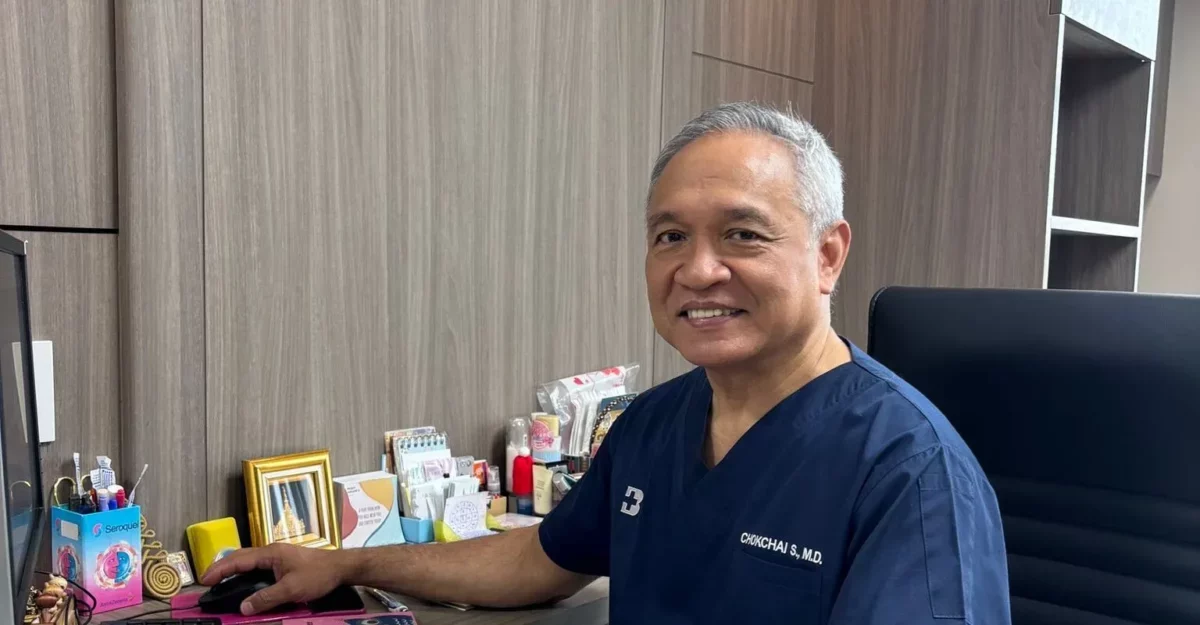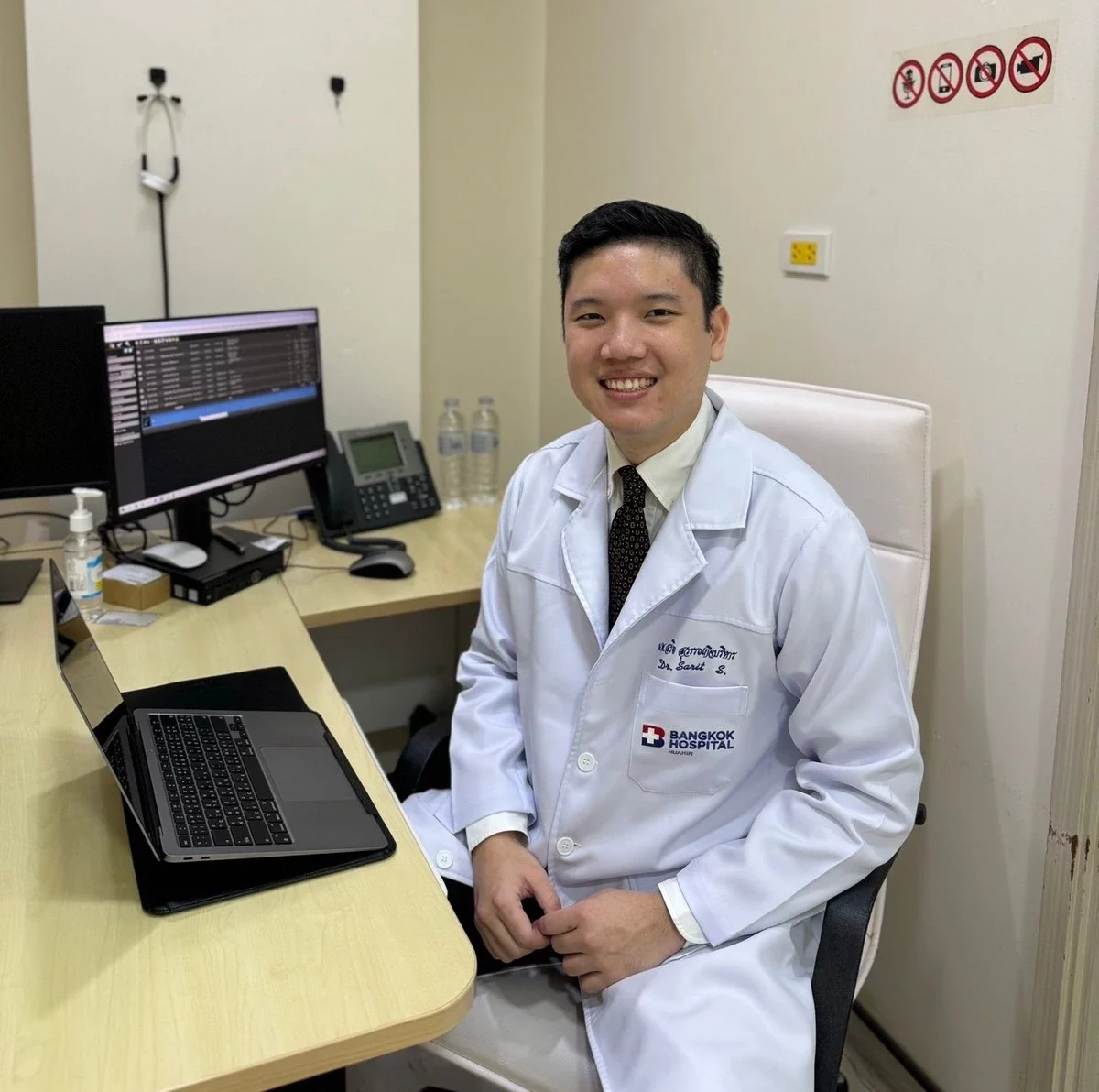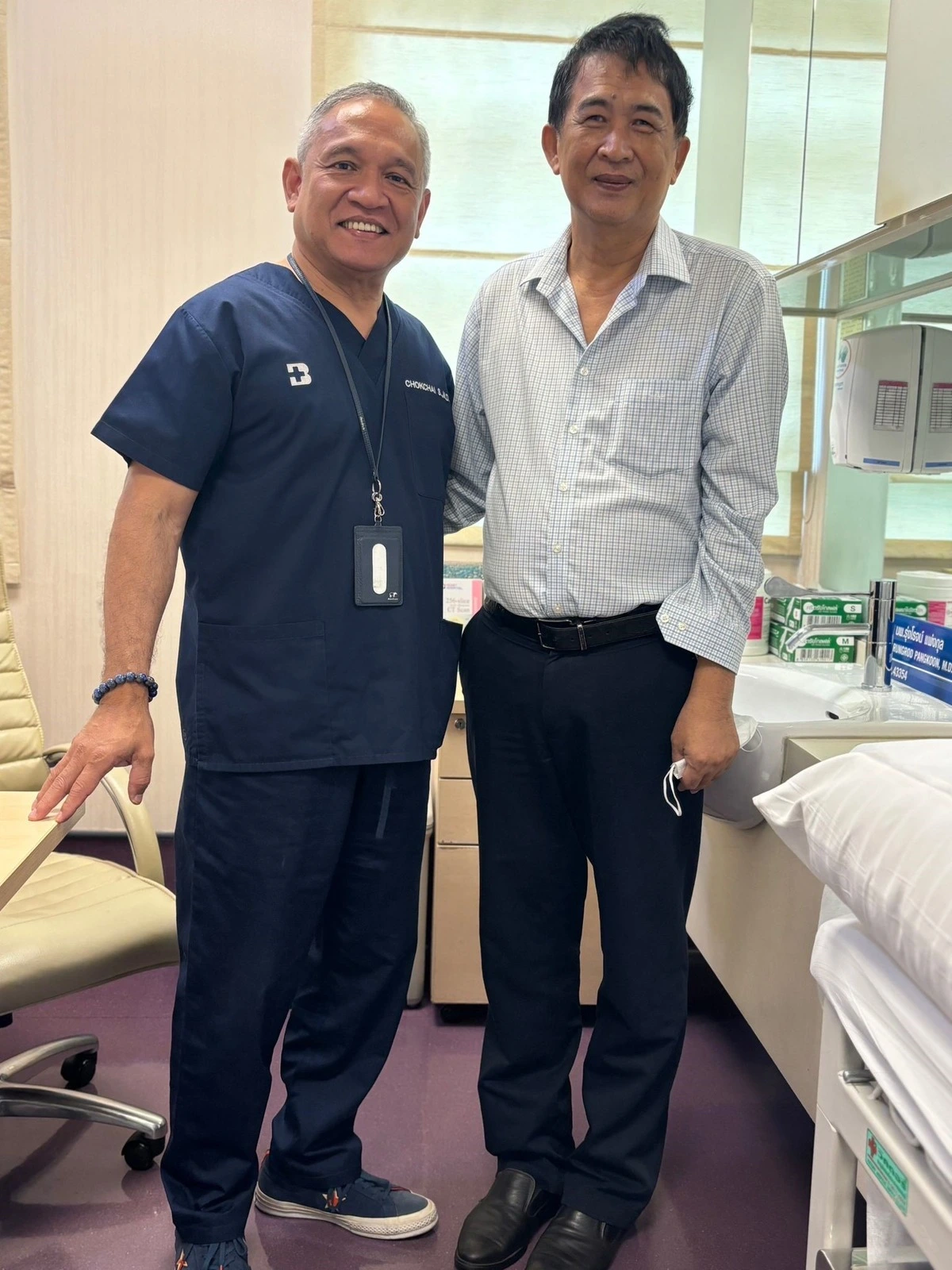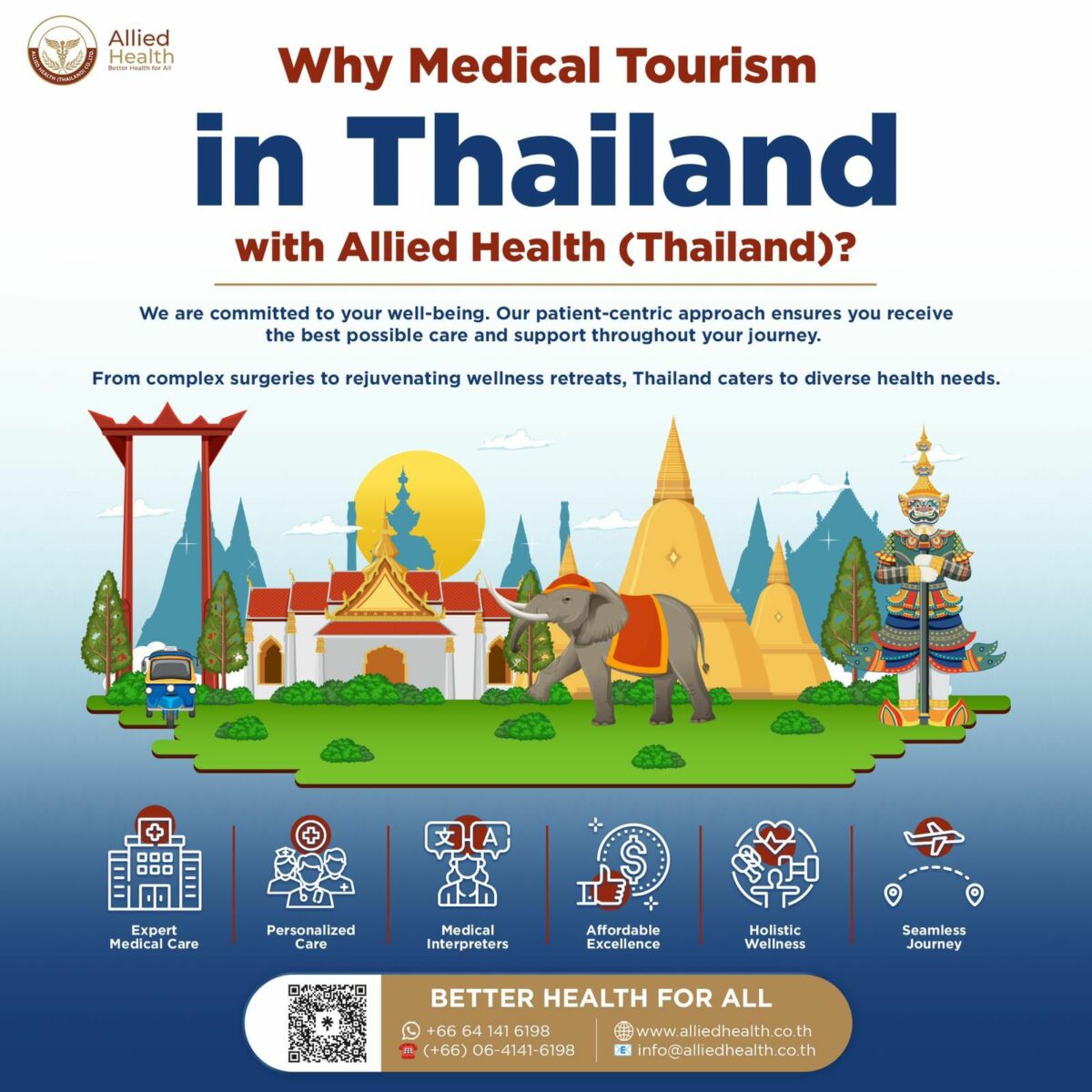Allied Health (Thailand): Second opinions for medical tourists

As Thailand continues to position itself as the leader of medical tourism in Southeast Asia, tourists may be still uncertain about how to approach receiving treatment.
Should you bother looking for a second opinion while seeking healthcare abroad? Will the facilities be as clean and accessible as in my home country? What information should you be looking for when deciding on the right hospital or doctor for you?
On this episode of The Thaiger Podcast, two experts on medical healthcare tourism in Thailand shared their advice for patients looking for treatment in Thailand.
Lt. Col. Dr. Chokchai Suwanakijboriharn M.D., the founder of Allied Health (Thailand), and LDdr. Dr. Sarit Suwanakijboriharn M.D. (Dr Sarit), general surgeon at Bangkok Hua Hin Hospital discussed the importance of getting a second opinion, whether healthcare is an art or a science, and the bright future of medical tourism in Thailand.
The importance of the second opinion
With the expensive nature of medical treatments, it is common practice for people to look at multiple procedures, doctors and facilities before deciding what will be best for them
As a first-time medical tourist, you may be unsure about whether you can still weigh up your options before settling on a treatment plan.
Dr Sarit believes before making any major decision you should always look for a second opinion. This is especially true for the medical industry.
“I think it’s like when you’re buying a shirt, there is no one size fits all. You can go to a shop, and if there’s only one style you may not even know there is another style.”
“It’s the same in the medical field. If you go to the first doctor, he might just give you one option. You may not know there is another. Always ask for a second opinion when you decide major things in your life.”

This is why Allied Health (Thailand) strives to provide the most up-to-date and accurate information. Dr Chokchai explains this information is directly sourced from a range of leading Thai healthcare providers.
“Our job is to provide the information for the customer or patient on which treatment is the best and the opinion of the physician. The family and the patient can then decide by themselves when they have all the information.”
By providing all the information to the customer, patients are equipped with the tools to properly examine alternative treatment plans and second opinions.
“The alternative is the second opinion. We try to provide all the standard information by investigating the treatments, and if the patient does not want it to be done like that, we explore other ways to complete their treatment.”
Health: Art or science?
With health as a lifestyle, both Dr Chokchai and Dr Sarit shared it all comes down to consistency.
“There is no shortcut, for health you need consistency.”
“Medicine is art and science equally. Consistency and discipline are important, but this is the most difficult part. Most patients want a short-term result and easy ways to achieve them.”
In fact, many medical problems can be resolved without invasive procedures. Dr Chokchai reminded patients that healthcare professionals receive extension training to prefer prevention as opposed to medical intervention.
“When we train, the most important part is not to focus on using the knife, it is to focus on how we can avoid using the knife.”
Dr Sarit shared that he will recommend patients modify their diet and exercise regimes before undergoing a medical procedure.
In many cases, these small changes are enough to address significant medical issues. This is why Allied Health (Thailand) continues to support patients in seeking multiple treatment and/or healthcare alternatives.

The Thailand medical tourist’s experience
Thailand continues to prove their evolving expertise in healthcare provision. However, there are other factors which help explain why medical tourists are becoming more common in Thai hospitals.
“The patients who visit our hospitals for the first time say they have been treated like a king.”
“It’s because of our hospital facilities, fast service, and international healthcare standards.”
Outside of receiving medical treatment, medical tourists in Thailand are spoilt for choice when it comes to leisure and pleasure.
“The healthcare industry in Thailand is world-class. The quality of the treatment is okay, and the cost is not expensive compared to many countries. Service facilities outside of the non-medical field are very good,” says Dr Chokchai.
This is why according to Dr Chokchai, Allied Health (Thailand) partners with accommodation and wellness providers. With Allied Health, customers get to plan their perfect getaway while receiving care and attention to improve their lives.
Thailand makes leaps in healthcare provision
Healthcare in Thailand has rapidly advanced, making it now one of the top destinations for medical tourists.
The country’s healthcare system is a blend of public and private providers. Over 41.7 million Thai people today receive healthcare under the Universal Coverage Scheme (UCS).
As a veteran heart surgeon and established expert in healthcare provision, Dr. Chokchai has seen healthcare accessibility only grow in the Land of Smiles.
“When I joined the private sector 30 years ago, at that time the problem for the Thai community was it was difficult to seek healthcare.”
“Currently, the customer or the patient can easily approach the healthcare facility.”

Home to more than 60 Joint Commission International (JCI) accredited hospitals, Thailand offers advanced treatments at a fraction of the cost compared to Western countries.
For instance, while a heart bypass surgery in the United States will set you back $100,000 USD, the same surgery in Thailand may only cost $10,000 USD: one-tenth of the price.
By matching competitive pricing with quality healthcare outcomes, medical tourism in Thailand is continuing to thrive.
In 2023, an estimated 3 million foreign patients visited annually for services ranging from cosmetic surgery to cancer treatments. This growth underscores Thailand’s global reputation for high-quality, cost-effective healthcare solutions.
The future of medical tourism in Thailand
When it comes to what’s next for the medical tourism industry in Thailand, technology and economic growth are promising indicators of a new wave of rapid development.
In Thailand, hospitals and medical practices are continuing to build their capacity to serve both local and foreign customers.
Dr Chokchai believes that as Thailand strives to become the best healthcare provider in Southeast Asia, what is missing is someone to help patients book their next appointment.
“Our company vision is to try to make a bridge, to bring patients from abroad to the best facilities for them, here in Thailand.”
Sponsored
Latest Thailand News
Follow The Thaiger on Google News:


























